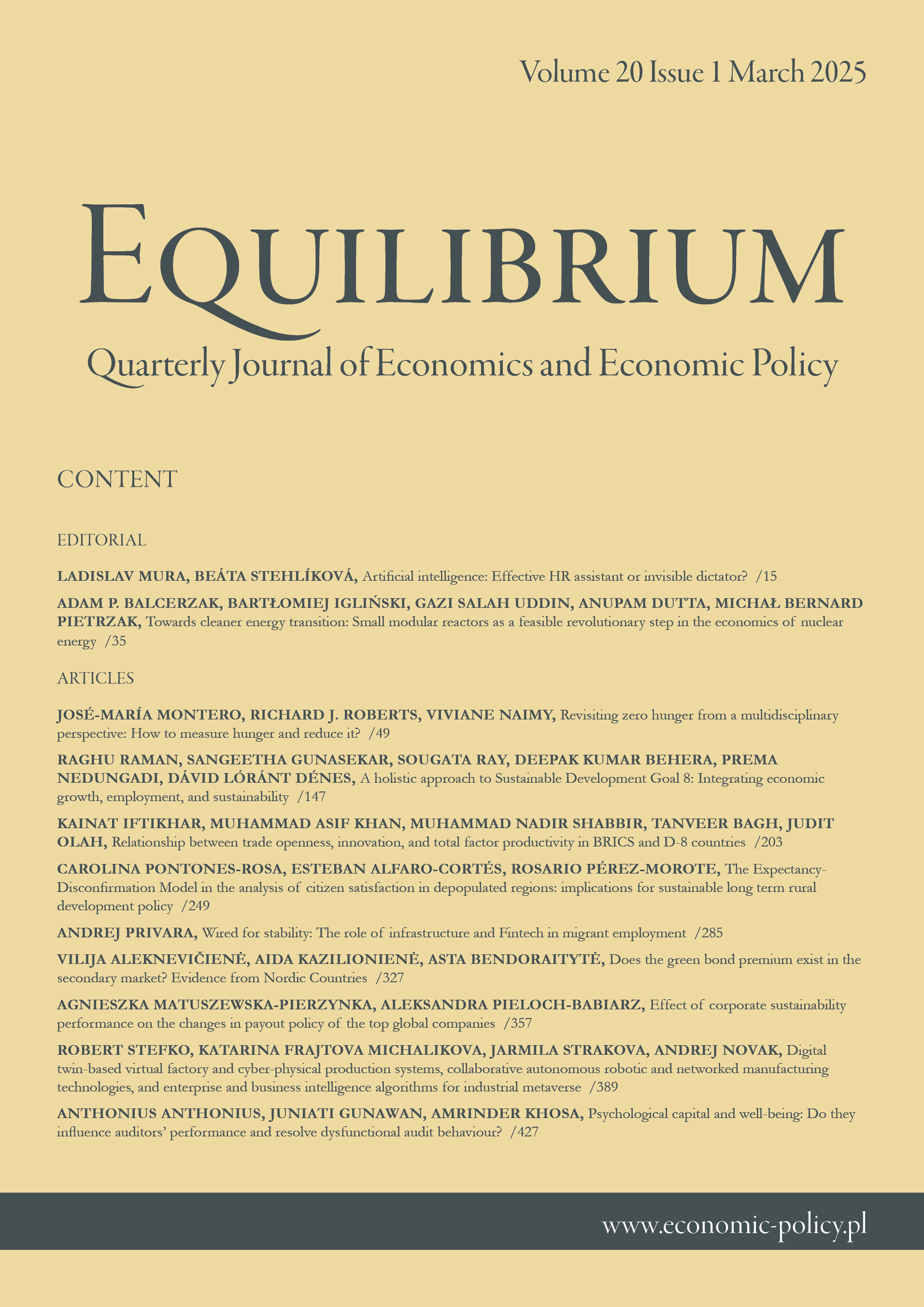Revisiting zero hunger from a multidisciplinary perspective:
How to measure hunger and reduce it?
Revisiting zero hunger from a multidisciplinary perspective:
How to measure hunger and reduce it?
Author(s): José-María Montero, Richard J. Roberts, Viviane NaimySubject(s): Supranational / Global Economy, Socio-Economic Research
Published by: Instytut Badań Gospodarczych
Keywords: global hunger index; dimensionality reduction; data imputation; partitioning around medoids clustering algorithms; genetically modified organisms;
Summary/Abstract: Research background: The solution to the multifaceted problem of hunger remains a chal- lenge: about 735 million people experience hunger, especially in sub-Saharan Africa, South Asia, and parts of the Middle East. It would be expected that the measurement of the serious- ness of such an important problem would be carried out with scientific objective indices. However, this is not the case. The most widely used index, the global hunger index (GHI), uses participatory methods to weigh the four correlated facets (indicators) of hunger consid-ered: undernourishment, child stunting, child wasting, and child mortality, which translates into subjective and inaccurate results. Purpose of the article: We aim (i) to contribute an objective and realistic weighing scheme for the GHI that, in addition, avoids the double-counting problem derived from the correlation among their indicators; and (ii) provide accurate methods for non-available data imputation. Methods: For (i), we propose a dimensionality reduction-based weighing scheme. For (ii), in countries with more than one non-available indicator, we substitute their current tentative qualitative classification according to the GHI Hunger Severity Scale with the accurate predic- tions provided by a partition-around-medoids clustering algorithm. For those with only one non-available indicator and a bounded GHI, we are able to deduce their true value. Findings & value added: Our results demonstrate that the weights provided by the above methodological proposals differ dramatically from the subjective weights used in the GHI, which leads to significant changes in the GHI ranking of countries. These findings suggest reconsidering the relative importance of hunger because GHI is a vital tool for policymakers to understand this problem, make informed decisions, prioritize resources, track progress on global goals, and design effective and efficient interventions. Finally, we advocate for the use of genetically modified organisms and high-productive agriculture as one of the main instru- ments to face hunger.
Journal: Equilibrium. Quarterly Journal of Economics and Economic Policy
- Issue Year: 20/2025
- Issue No: 1
- Page Range: 49-145
- Page Count: 97
- Language: English

